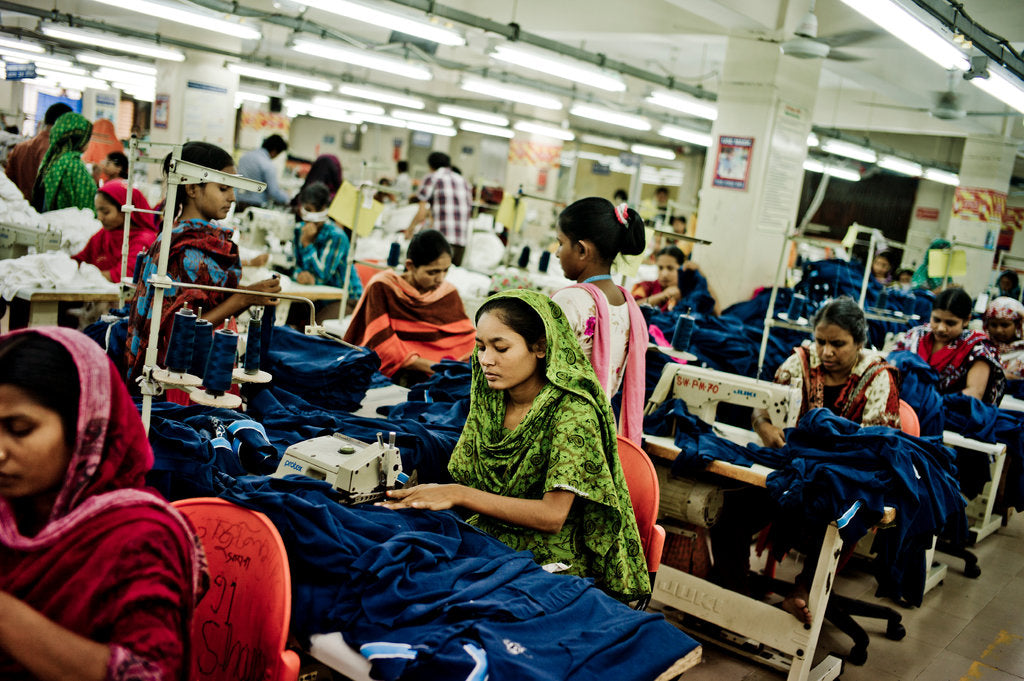In today's consumer-driven world, fast fashion has become a global phenomenon. It refers to the rapid production and consumption of low-cost, trendy clothing and accessories by retailers that cater to a mass market. The industry has grown significantly in recent years, with big players like Zara, Love Moschino, LVMH, and Mario Valentino dominating the market. However, as the industry continues to thrive, it's essential to take a closer look at the environmental and ethical implications of fast fashion.
Who are the Big Players in Fast Fashion?
Fast fashion has become a lucrative industry with a few major players dominating the market. Zara, H&M, Forever 21, and Gap are among the biggest brands in the fast fashion world, known for their speedy production and low prices. However, luxury brands like Gucci and Burberry have also entered the fast fashion market, producing cheaper collections to target the mass market. While these brands provide consumers with access to high-end fashion at a lower price, they contribute to the environmental and ethical problems associated with fast fashion.
The Environmental Impact of Fast Fashion
Fast fashion is known for its rapid production and consumption, with new trends appearing every week to entice consumers to purchase new items constantly. However, this process is unsustainable and has a significant impact on the environment. The fashion industry is the second-largest polluter globally, with textile production being a significant contributor to carbon emissions and water pollution. The production of fast fashion involves the use of non-biodegradable materials like polyester and nylon, which can take up to 200 years to decompose, further adding to the landfill problem.

Furthermore, the production of these materials requires a significant amount of energy and water, which contributes to the depletion of natural resources. The dyeing and finishing of textiles also require a large amount of water, which is often discharged into nearby water sources, leading to contamination and a shortage of clean water in affected communities. The carbon footprint of the transportation and shipping of fast fashion items also contributes to climate change.
The Ethical Implications of Fast Fashion
The rapid production of fast fashion also raises ethical concerns. Fast fashion companies often outsource production to developing countries with lax labor laws, where workers are paid low wages and work in poor conditions. The factories often lack safety measures, and workers are subjected to long hours of work, with little to no overtime pay. This has resulted in numerous incidents of human rights violations and factory accidents, like the Rana Plaza disaster in Bangladesh in 2013, where over a thousand people lost their lives.
Additionally, the fast fashion business model encourages the overconsumption of disposable clothing, which contributes to a culture of waste and a disregard for the value of labor and resources that go into producing clothing. This results in a throwaway mentality that contributes to the growing issue of textile waste and a lack of accountability for the social and environmental consequences of fashion production.

What Can We Do?
As consumers, we can play a significant role in reducing the impact of fast fashion on the environment and society. By reducing our consumption and opting for sustainable fashion, we can help reduce the amount of textile waste that ends up in landfills. Shopping secondhand, up-cycling, and buying from ethical and sustainable brands can help reduce our carbon footprint and contribute to a more sustainable future.
Furthermore, we can use our purchasing power to hold fast fashion brands accountable for their social and environmental impact. By choosing to support sustainable brands like Linvelles that offer high-end designer outlet handbags at a lower cost, we can help reduce the demand for fast fashion brands and encourage more sustainable production practices. We can also advocate for policy changes that hold fast fashion brands accountable for their impact on the environment and society, and push for greater transparency and accountability in their supply chains.

Conclusion
Fast fashion has become a global phenomenon, with big players like Zara, H&M, Forever 21, and Gap dominating the market. However, the environmental and ethical implications of fast fashion are significant, contributing to the depletion of natural resources, carbon emissions, water pollution, and human rights violations. As consumers, we can make a significant impact by reducing our consumption, choosing sustainable fashion, and supporting ethical brands. By doing so, we can help create a more sustainable future and hold fast fashion brands accountable for their impact on the environment and society. Brands like Linvelles offer a solution for those who want to purchase high-end designer handbags while also being environmentally and socially conscious.

Leave a comment